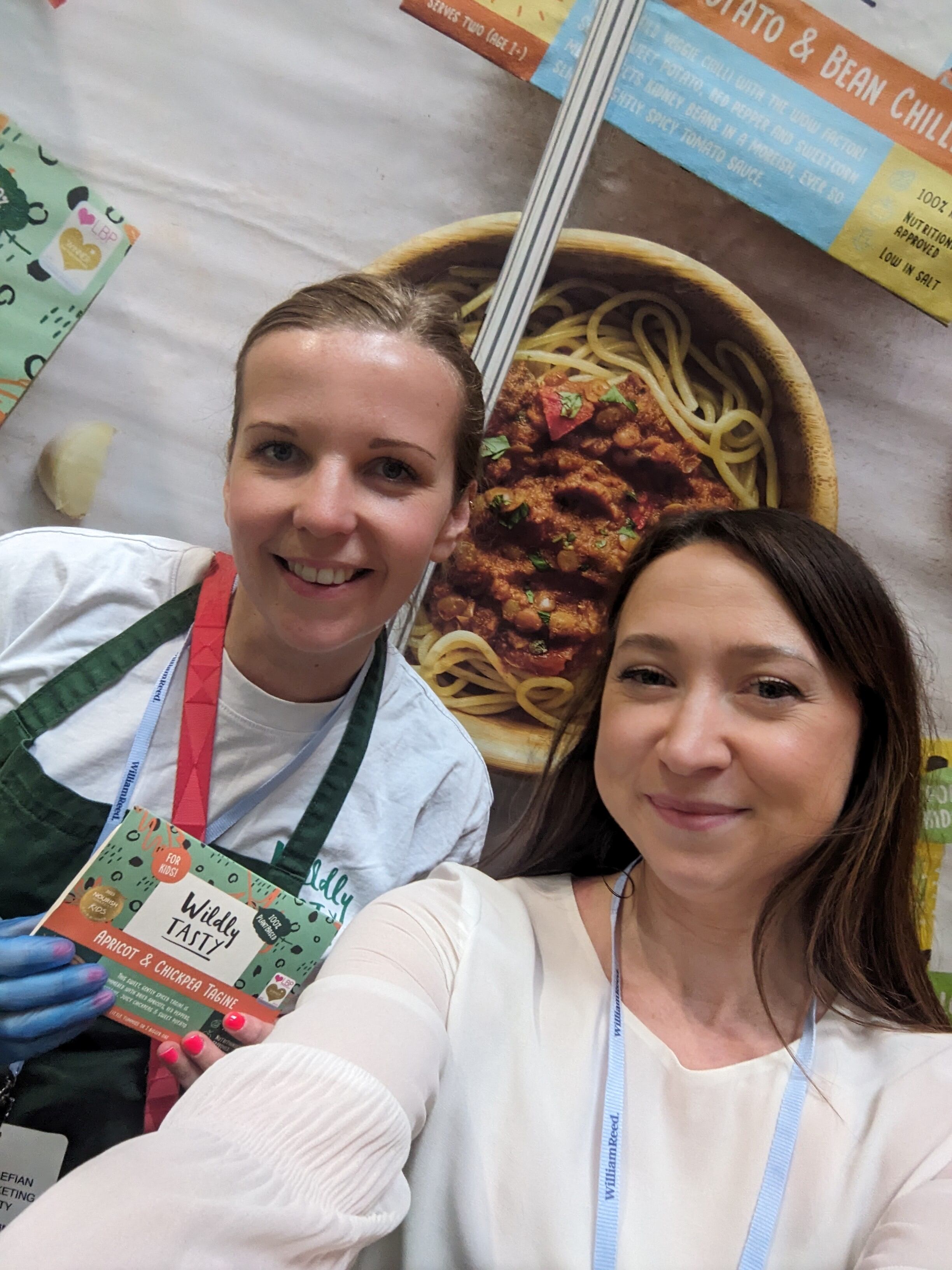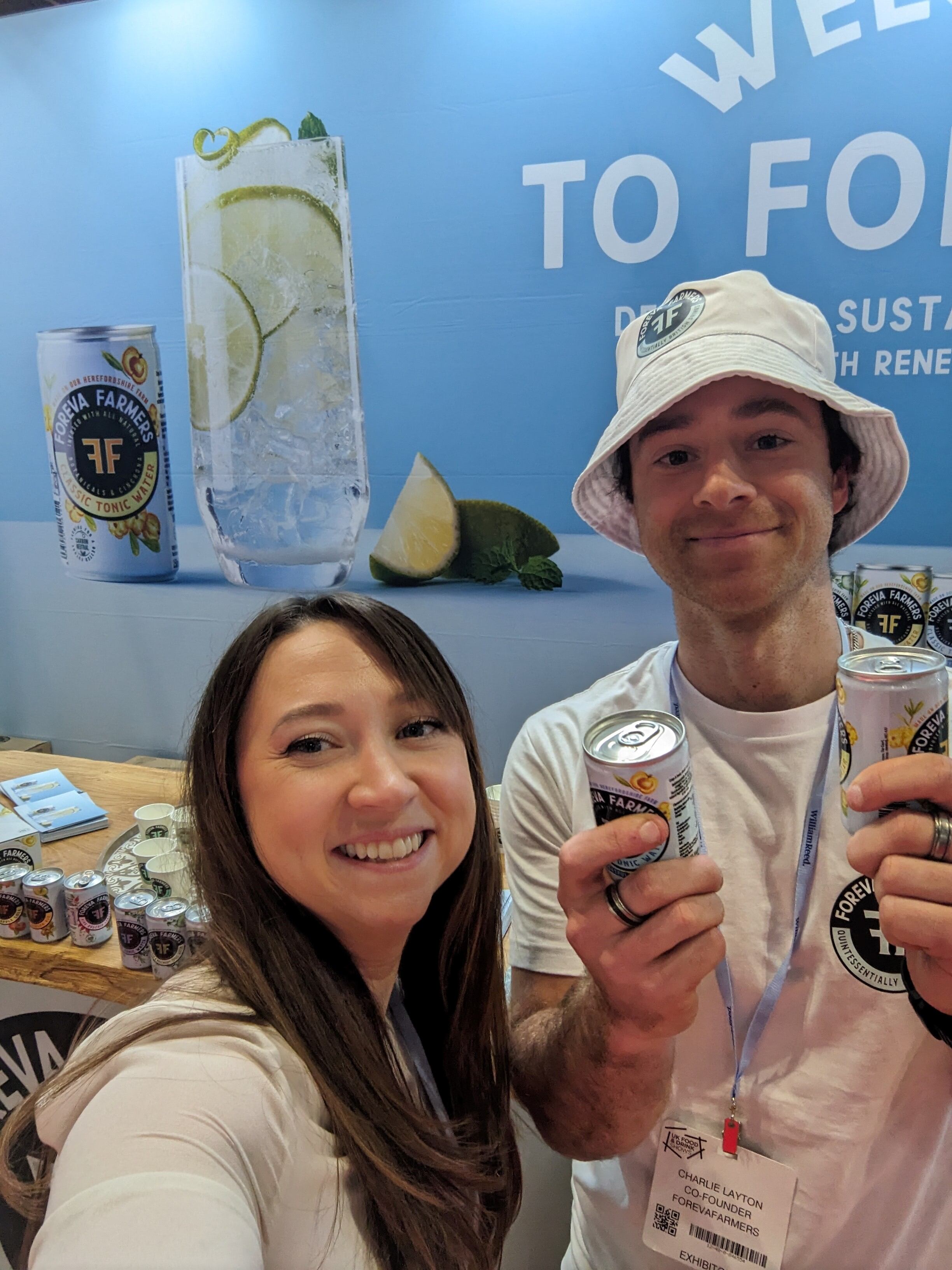Wildly Tasty: Flexible food for families
Wildly Tasty creates plant-based for families and kids, available in two portions sizes to either serve one adult or two children, or one adult and two children.
The range is designed to be nutritious and convenient, with six frozen meals currently available.
The brand was designed and is run by “busy mums”, Hattie Yousefian, head of marketing for Wildy Tasty told Food Manufacture, and to encourage a love of vegetables and pulses at a young age.
The range includes Mushroom & Lentil Bolognese, Sweet Potato & Bean Chilli, Super Tomato & Five Veg Sauce, Apricot & Chickpea Tagine, Coconut & Sweet Potato Dahl, and Yellow Thai Veggie Curry.
“We’re introducing global cuisine early on,” Yousefian continued. This is not just true of its contents but also the way in which the meal can be used. Unlike some other ready meal products which come as a complete package, Wildly Tasty is focused on the ‘main event’ and can be eaten alongside whatever accompaniment you fancy.

“Rather than your standard ready meals which come with pasta or rice, there’s no reason why you couldn’t serve these with a jacket potato,” Yousefian offered. “It gives flexibility to serve different cuisines maybe not how they’re traditionally served.”
Yousefian said flexibility and ‘real food’ are two growing trends the brand is focused on.
“Children like choice and that’s not what’s on offer at the moment and their taste buds vary – where they like pasta one week they might not the next week.
“[The brand] gives an easy, quick option and the child a bit of control as well over their food.”
The is business looking to expand its range and scale up in the future, whilst still maintaining its handmade quality.
Foreva Farmers: ‘World first’ coming soon
Foreva Farmers is on a mission to “become the most sustainable drinks brand in the world” co-founder Charlie Layton told Food Manufacture.
The Herefordshire-based beverage producer has its own renewable energy plant on its farm which powers its canning line. On farm, the business grows maize, rye and wheat which is fed into its anaerobic digestor. The biogas generated from this process is used to generate the electricity that powers its canning line.
Moreover, instead of releasing its CO2 into the atmosphere, the business captures and repurposes it to carbonate its drinks.
“We are the only tonic and mixers brand in the world using renewably CO2 to produce our drinks and renewable electric,” Layton claimed.
“We are currently carbon neutral, soon be to certified as carbon negative.”
Alongside its strong ‘green’ ethos, the business also “only uses natural ingredients” with no artificial flavours or preservatives.
Within its range, Foreva Farmers boasts eight flavours across five tonics and three mixers: a classic tonic water and a light version, a herbal tonic, a cucumber and rosemary tonic, a spiced apple cola, a pink rosehip lemonade, a smoky ginger ale, and an elderflower and honey tonic. The latter uses the honey made by the honeybees on farm, whilst much of its other ingredients are sourced from local flavour houses.

The business will soon be launching a 200ml and 500ml aluminium bottle too, due to come in June, which Layton says will be a “world first” for first for tonic and mixers.
Alongside its own brand – which only launched 6 months ago – Foreva Farmers also manufactures for others and has a capacity of 20 million cans a year.
“A fraction of that is from our brand but the goal is for us to fill that with Foreva Farmers,” said Layton.
Speaking on its beginnings, he said the business had initially put in the contract canning facility because it wanted to make its own drinks but soon realised it wouldn’t have the demand.
“So we worked backwards, we put in the contracting facility for other people and now we produce for ourselves as well.”
Stag Bakeries: Cheese in new ways
Established in 1885, Stag Bakeries turns 140 years old this year.
This family run, independent manufacturer is based in the Isle of Lewis in Scotland and makes a lot of cheese-flavoured biscuits, such as cheese straws, and cheese accompaniment biscuits, among other bakery goods such as shortbread and cakes.
A big focus for the bakery is making food with province, whilst leveraging current trends such as a move towards seaweed as a salt replacement and local cheeses used in novel ways.
“We make seaweed biscuits which use seaweed sourced from the local area,” Daniel Smith, sales and marketing manager for Stag Bakeries added.
“Something we get asked for a lot now are cheesy nibble products. There’s so many amazing cheeses in the UK, people want different ways to use them.”
Smith added that cheese used in snacking is also a great way for this product to stand out.
“They have their own character and own flavour and people are looking for more variety in terms of snacking flavours as well.
“It’s about bringing an ingredient to life in a different format.”
The business has also partnered with the Hebridean Baker – aka international best-seller author and chef Coinneach Macleod, who was born and raised on the island of Lewis. This collaboration has taken the form of a range shortbreads and oaties.
Recipe reformulations is also another key area Stag Bakeries is turning its attention to, with dietary requirements changing and gluten-free requests picking up.
“We don’t currently do this [gluten-free], but for the future it’s something we’ll keep in mind.”
LAMA: Healthy snacking
Datekin launched last month and is the first product to be introduced by brand-new British start-up LAMA. The brand uses pitted sukkari dates hand-selected from Saudi Arabia which offer a caramel flavour.
Unlike medjool dates which can be quite sticky, this product is produced in a way to make it suitable for the snacking aisle – the key, according to Liam Allen head of ecommerce and brand manager at LAMA, is not rehydrating them.
“Usually, dates are rehydrated to make them look more moist and more appetising,” he explained – and this makes them sticky and not ideal for the on-the-go snacking aisle.
“They [dates] are mainly used for recipes – we want them to be ‘convenience’,” he added. “So they’re easy to grab out of a bag and pop in your mouth.”
While Datekin dates appear quite dry, they’re actually not, Allen continued. The ‘dry shell’ is actually a natural sugar coating that forms around the date, making it chewy and sweet.
The idea for the product came as the drive for ‘natural’ products and health continue to dominate the scene, with Allen saying Datekin is designed to offer a “natural energy boost during the day”.
The Datekin brand has also just secured a brand partnership with ‘Tough Mudder Spartan events’, with the first event taking place on May 11 in West London and has an upcoming trial with Co-Op in East of England.
Alongside its dates, LAMA is also launching a range of snacking nuts to further capitalise on the healthy snacking trend.
The Tuffnut range includes truffle, smoky paprika, salt and vinegar, and mango chutney flavoured almonds; and chilli citrus, and wasabi flavoured cashews.

The trend gives Brits their all-time favourites with salt and vinegar, as well as the leveraging the more recent trend of ‘swicy’ and East Asia flavours.
“People want spiciness but also sweetness – they’re the two main areas within the category of the nuts,” Allen said.
At £1.59 for almonds and £1.69 for cashews, the business is looking to deliver quality at an affordable price – an ode which its Tuffnut name alludes to: “We’re tough on quality and flavour”.
LAMA is currently UK only, but the plan is to expand across Europe in then next 12 months. Allen also told Food Manufacture that the business is exploring how it can source its own nuts and move roasting into the UK.
Jimmy’s Iced Coffee: ‘Doughnut flavour on the cards’
Established in 2010 in Dorset UK, Jimmy’s Iced Coffee was created by sibling duo Jim Cregan and Suzie Owen after Cregan was inspired by the iced coffee he tried during his travels in Australia.
“What Jim had found was nothing like what he’d discovered out in Australia,” James Mccaffery, business development manager for Jimmy’s Iced Coffee told Food Manufacture, adding that, for Cregan, everything on the UK market “was all too sickly and sweet, more heavy like a dessert”.
“We are a challenger brand,” he continued, explaining that Jimmy’s was created to disrupt perceptions of iced coffee being a “stale, warm coffee left to go cold”.
“We are manufactured to be served cold.”
The brand is also designed to appeal not just to young adults but older folk, with its range including a variety of flavours and meeting non-HFSS requirements. This includes its original latte; a range of flavoured options, including mocha, cinnamon and caramel; an alternative option in the form of an oat latte; and protein-rich versions in partnership with Myprotein.
Its cinnamon flavour is its latest SKU, launched around 6 months ago, and the brand is continuing to spy opportunities in the sweet drinks space, with a doughnut flavour to come.

The products are available in wholesalers up and down the country and online. For the latter, the products come in a variety of can sizes – all in 12 packs. Its biggest cans retail for £28 per 12 x 380ml, its next size down for £24 per 12 x 275ml, and its slim cans at £22 per 12 x 250ml, with an option to subscribe and save online.
“The slim cans are more price point driven, these are PMP, so more tailored to on shelf sellout at £1.39 and then we have our food service specific vessel,” continued Mccaffery.
The larger cans come in a patented vessel called ‘The bottle can’. This can is made from aluminium, but it can also be resealed.
“It’s a fully resealable, recyclable bottle that comes from a recyclable source.”
The business was acquired by Britvic (now Carslberg Britvic) in 2023.
Noomz: Freeze-dried sweets
Inspired by trends in America, Yorkshire-based Noomz debuted its new freeze-dried sweets at the UK Food and Drink Shows.
This involves freezing sweets at extremely low temperatures and then placing them in a vacuum chamber where the ice transitions directly from solid to vapour (a process called sublimation).
Freeze-dried sweets were named one of the must-watch trends of the year at last year’s Sweets & Snacks Expo by the National Confectioners Association; with platforms such as TikTok helping to ignite the freeze-dried buzz.

Brand founder of Noomz, Mubarak Isap, said the sweets are traditional favourites made in a new way.
“I heard about the trend through my nephews,” he told Food Manufacture. “It’s a new dimension to candy. It’s very young in Europe, we’re about a year behind. In America it’s huge.”
The advantage of freeze-dried for Isap is not just the interesting mouthfeel, but it also removes the risk of having jelly stick to your teeth.
The full Noomz range includes Berry Blast, Fruit Bites, Fruit Bears, Lemon Bites, Mini Rocks, Drift Rocks, Jelly Rings, Rain Burst, Sour Bites, Sour Worms, and Watermelon Slices.
Grand View Research anticipates the market for freeze-dried candy to almost double, growing from its current value at €1.2 billion (£1 billion) to €2.2 billion (£1.8 billion) by 2030.


